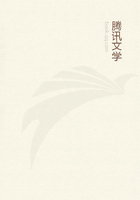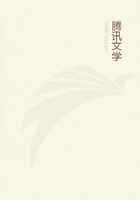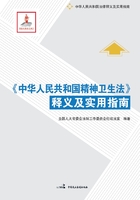It is only so far as it is instrumental to this end that we can see a use, and therefore find a reason, for its existence.Now, as one individual is more provident and prudent than another, we can easily conceive how one may come to procure for himself a greater share than another of the national funds, the means, or instruments, serving to unlock the stores which the nation possesses; but it is not so easy to conceive how, or for what purpose, a general increase of these means or instruments should take place without some accompanying discovery of an improvement in their construction by which they may put additional stores within reach of the nation.
We may easily perceive this, by attending to any of the numerous small items of which the national capital is composed.I shall take an example of a very small one.The only instrument used for threshing out grain in Great Britain, until of recent years, was the flail.Hence one or more flails formed a part, though a small part, of every farmer's capital, and therefore all the flails that all the farmers had, a part, though an exceedingly inconsiderable part, of the national capital.So simple an instrument and one so easily formed, was made, I believe, generally, by the farmer or his servants, though sometimes, by professed mechanics.In whatever way fabricated, it is evident, however, that the number of flails made, though from the convenience of having a supply provided before hand they would exceed, could never much exceed, the number of persons employed in the operation of threshing.A professed flail-maker indeed, if diligent and intelligent, might, by the aid of these qualities, have been able to make them cheaper than his neighbors, and, if economical, to extend his business and come to have some amount of capital in this shape.But, though thus, by his industry and frugality, an individual might have accumulated capital under this form to an extent to which we can set no precise limits, the national capital never could have been so increased, because, if one person by greater diligence and activity, made more flails, another, from a deficiency of these qualities, would make fewer; or, if we suppose all the makers of the instrument to be alike industrious, and thus the stock of it to accumulate, so as to do more than supply the wants of the threshers, the article would remain on their hands, and they would naturally cease to produce the superabundant supply.While, therefore, the instrument retained this less perfect form, it is, I think, pretty evident, that, though individuals might accumulate capital by making flails, neither the national capital, nor the national revenue, would be much increased by their efforts so directed.
About forty years ago, the easier and more perfect method of executing this process, by what is called the threshing machine, was invented.These new instruments, though far more expensive than the former, yet, performing the operation more effectually, and with much less labor, became naturally things which farmers were desirous of having.A farmer could have had no motive to accumulate but a very trifling capital in the shape of flails, because half a dozen were as useful to him as half a thousand; but he had a great motive to accumulate a considerable capital in the shape of a threshing machine, because it would save him much annual expenditure of labor, and the operation so performed, separating the grain more effectually, would give him a small addition to the corn yielded by his subsequent crops.
Accordingly its invention was followed by the accumulation in this form, of a large amount of capital, and so by an increase of the whole agricultural capital of the nation.But, besides this direct effect, the saving it produced in one of the main processes of agriculture augmented the profits of the farmers, and tended, therefore, to make all farmers cultivate their farms more perfectly, and some to engage in improving land not before cultivated.
Both the direct and the indirect effects of this invention, therefore, must have helped, in no inconsiderable degree, to augment the agricultural capital, and so the whole capital of the nation.
"It readily occurs to every individual that the quantity of hardware, the number of pots and pans, is in every country limited by the use which there is for them; that it would be absurd to have more of such utensils than are necessary for cooking the victuals usually consumed there; and that, if the quantity of victuals were to increase, the number of pots and pans would readily increase along with it; a part of the increased quantity of victuals being employed in purchasing them, or in maintaining an additional number of workmen whose business it was to make them." (13) But, though the national capital cannot thus be supposed to accumulate in the shape of an additional number of pots and pans, individuals who deal in hardware frequently accumulate capitals in this shape, to a large amount.We can easily conceive, that the national capital also, might accumulate in this shape, were some discovery, producing an improvement in the manufacture, to occur.Were a method discovered of procuring and manufacturing platina, or some metal similar to it, at only four or five times the cost of brass, it would, without doubt, be employed in the fabrication of kitchen utensils of all sorts.Not being acted on by fire, and other destroying agents, it would save a great deal of the drudgery of the kitchen, and, though more costly at first, would probably, on the whole, be preferred by good economists.Thus, pots and pans becoming more expensive articles, the amount of national capital, or stock, accumulated in them, would be much greater, and, through this improvement, the whole national capital would, with advantage to the society, be somewhat augmented.














